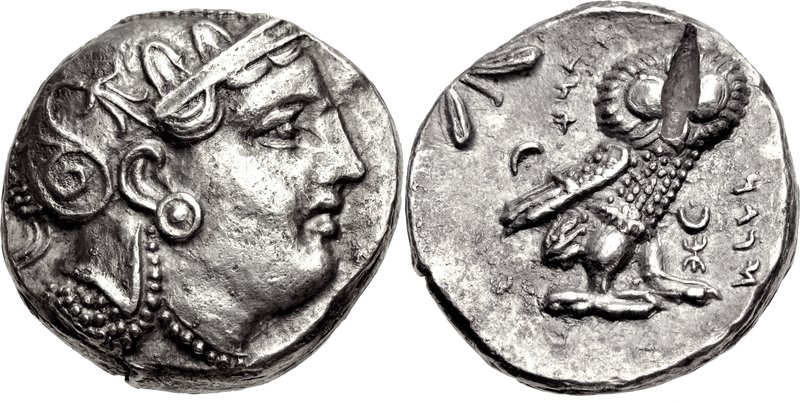Sabaces on:
[Wikipedia]
[Google]
[Amazon]
 Sabaces (name variants: Sabakes, Sauaces; Sataces; Sathaces;
Sabaces (name variants: Sabakes, Sauaces; Sataces; Sathaces;
 Sabaces (name variants: Sabakes, Sauaces; Sataces; Sathaces;
Sabaces (name variants: Sabakes, Sauaces; Sataces; Sathaces; Diodorus Siculus
Diodorus Siculus, or Diodorus of Sicily ( grc-gre, Διόδωρος ; 1st century BC), was an ancient Greek historian. He is known for writing the monumental universal history '' Bibliotheca historica'', in forty books, fifteen of which ...
calls him Tasiaces; Aramaic: 𐡎𐡅𐡉𐡊 SWYK, died in 333 BC) was an Achaemenid
The Achaemenid Empire or Achaemenian Empire (; peo, wikt:𐎧𐏁𐏂𐎶, 𐎧𐏁𐏂, , ), also called the First Persian Empire, was an History of Iran#Classical antiquity, ancient Iranian empire founded by Cyrus the Great in 550 BC. Bas ...
Persian satrap of the Achaemenid Thirty-first Dynasty of Egypt
The Thirty-first Dynasty of Egypt (notated Dynasty XXXI, alternatively 31st Dynasty or Dynasty 31), also known as the Second Egyptian Satrapy, was effectively a satrapy of the Achaemenid Persian Empire between 343 BC to 332 BC. It was founded by ...
during the reign of king Darius III of Persia.
Resistance to Alexander the Great
Some time before theBattle of Issus
The Battle of Issus (also Issos) occurred in southern Anatolia, on November 5, 333 BC between the Hellenic League led by Alexander the Great and the Achaemenid Empire, led by Darius III. It was the second great battle of Alexander's conquest of ...
(modern-day Turkey
Turkey ( tr, Türkiye ), officially the Republic of Türkiye ( tr, Türkiye Cumhuriyeti, links=no ), is a transcontinental country located mainly on the Anatolian Peninsula in Western Asia, with a small portion on the Balkan Peninsula ...
), Sabaces left Egypt with his army to join Darius III
Darius III ( peo, 𐎭𐎠𐎼𐎹𐎺𐎢𐏁 ; grc-gre, Δαρεῖος ; c. 380 – 330 BC) was the last Achaemenid King of Kings of Persia, reigning from 336 BC to his death in 330 BC.
Contrary to his predecessor Artaxerxes IV Arses, Dariu ...
in Syria
Syria ( ar, سُورِيَا or سُورِيَة, translit=Sūriyā), officially the Syrian Arab Republic ( ar, الجمهورية العربية السورية, al-Jumhūrīyah al-ʻArabīyah as-Sūrīyah), is a Western Asian country loc ...
and support him in his fight against Alexander the Great
Alexander III of Macedon ( grc, Ἀλέξανδρος, Alexandros; 20/21 July 356 BC – 10/11 June 323 BC), commonly known as Alexander the Great, was a king of the ancient Greek kingdom of Macedon. He succeeded his father Philip II to ...
. When the Battle of Issus
The Battle of Issus (also Issos) occurred in southern Anatolia, on November 5, 333 BC between the Hellenic League led by Alexander the Great and the Achaemenid Empire, led by Darius III. It was the second great battle of Alexander's conquest of ...
took place (November 333 BC) Alexander and his horsemen fought their way through the enemy troops until they came in close vicinity to Darius III, whose life was therefore threatened. Darius III was protected by the most noble Persians, among them also Sabaces, who was killed:Arrian
Arrian of Nicomedia (; Greek: ''Arrianos''; la, Lucius Flavius Arrianus; )
was a Greek historian, public servant, military commander and philosopher of the Roman period.
''The Anabasis of Alexander'' by Arrian is considered the best ...
, ''Anabasis Alexandri
''The Anabasis of Alexander'' ( grc-gre, Ἀλεξάνδρου Ἀνάβασις, ''Alexándrou Anábasis''; la, Anabasis Alexandri) was composed by Arrian of Nicomedia in the second century AD, most probably during the reign of Hadrian. The ...
'' 2.11.8; Diodorus Siculus, ''Bibliotheca historica'' 17.34.5; Quintus Curtius Rufus
Quintus Curtius Rufus () was a Roman historian, probably of the 1st century, author of his only known and only surviving work, ''Historiae Alexandri Magni'', "Histories of Alexander the Great", or more fully ''Historiarum Alexandri Magni Macedon ...
, ''Historiae Alexandri Magni'' 3.11.10 and 4.1.28
The Persian king fled because he feared for his life; therefore the Macedonians won the battle.
Successor
Mazaces
Mazaces, also Mazakes (Old Iranian: ''Mazdāka'', Aramaic: 𐡌𐡆𐡃𐡊 MZDK), was the last Achaemenid satrap of ancient Egypt during the late reign of Darius III of the 31st Dynasty of Egypt.
Mazaces succeeded Sabaces after the latter's ...
was probably the successor of Sabaces in Egypt, but because Sabaces had taken with him nearly all occupying forces, Mazaces was not able to organize military resistance against the Macedonians. Therefore, Alexander the Great was able to take Egypt without fighting (332 BC).
Notes
References
* Waldemar Heckel: ''Who’s who in the age of Alexander the Great. Prosopography of Alexander’s empire''. Blackwell, Oxford 2006, * Siegfried Lauffer: ''Alexander der Große''. dtv, Munich 1978, third edition 1993, , p. 78 and 87. Military personnel of the Achaemenid Empire killed in action Opponents of Alexander the Great 333 BC deaths Year of birth unknown 4th-century BC Iranian people Achaemenid satraps of Egypt 4th century BC in Egypt Thirty-first Dynasty of Egypt {{AncientEgypt-bio-stub